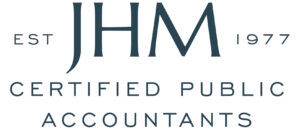Many construction companies rely on their ability to procure surety bonds to win projects. Owners of those jobs — government agencies in particular — often require bonding to guarantee that work will be completed one way or another.
As you’re likely aware, contractors are urged to manage their financials carefully to preserve and even increase their bonding capacities. But what is bonding capacity, really?
The three Cs
Simply defined, bonding capacity is the maximum amount of credit a surety will provide to a contractor. The term happens to be one of the “three Cs” of bonding, which include:
1. Character. This refers to whether a construction company can be trusted to honor its contract obligations. Sureties look at your business reputation, including your successes with previous projects and track record of paying suppliers. Honesty about financial information and completeness of the bonding application is a good indicator of character, as well as your communication methods with the surety.
2. Capital. This indicates financial strength. Many sureties look at adjusted working capital —the difference between current assets (such as cash and accounts receivable) and current liabilities (such as accounts payable and short-term debt). A surety will scrutinize your financial statements to set your bonding limit, which generally ranges from 10 to 20 times your adjusted working capital.
3. Capacity. As mentioned, this is the maximum amount of bonding you can qualify for, based on your total ability to fulfill a contract. Sureties look at your equipment, labor and other resources, as well as the type and size of contracts completed.
For example, if you want to secure a $10-million contract, but the largest contract you’ve completed to date was $5 million, the surety will likely be concerned about your capacity to deliver a project of that size. With materials costs rising, an increasingly common problem for many contractors is getting bonded for projects of the same scope but with now-higher pricing.
Ideas for boosting capacity
Here are a few ways you might be able to boost bonding capacity:
Take out a shareholder loan. Also called a capital injection, these loans are among the quickest, easiest ways to “inject” cash into the business and increase working capital. Shareholder loans are typically subordinated to the surety to be treated as equity and working capital. Thus, you’ll need permission from the surety to repay it.
Step up collections. Sureties usually remove receivables that are more than 90 days old from working capital unless you can show they’ve been collected or will be soon. Focus on collecting receivables in or near this 90-days-old bracket.
Sureties also tend to remove amounts a construction business has loaned to related parties (such as an affiliated company or subsidiary) from working capital. Ensure these amounts are paid back or reduced before year end.
Defer insurance renewals. Work with your insurance rep to push back any renewal payment dates that fall before year end. Doing so will reduce prepaid expenses for the year, which will increase working capital.
Strengthen your position
Now’s a good time to build up your bonding capacity as public infrastructure jobs come online, and the economy is less affected by the pandemic. Work with your CPA to better understand and strengthen your construction company’s working capital position.
The content featured in this article originates from our bi-monthly Contractor Newsletter. Subscribe below and stay in the know.

Subscribe to our client newsletter
GET IN TOUCH
2215 Olan Mills Drive
Chattanooga, TN 37421
Phone: 423-756-0052
Fax: 423-267-5945
CLIENT RESOURCES
© Copyright 2023. All rights reserved.




